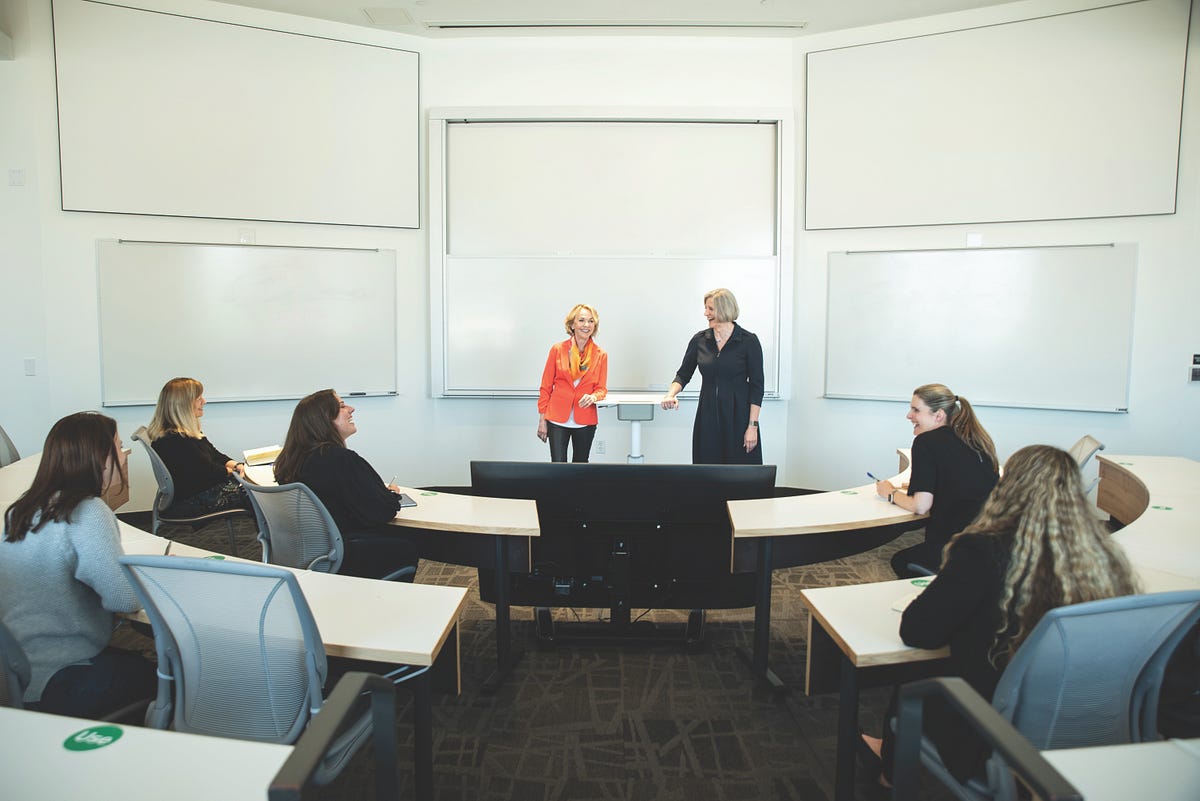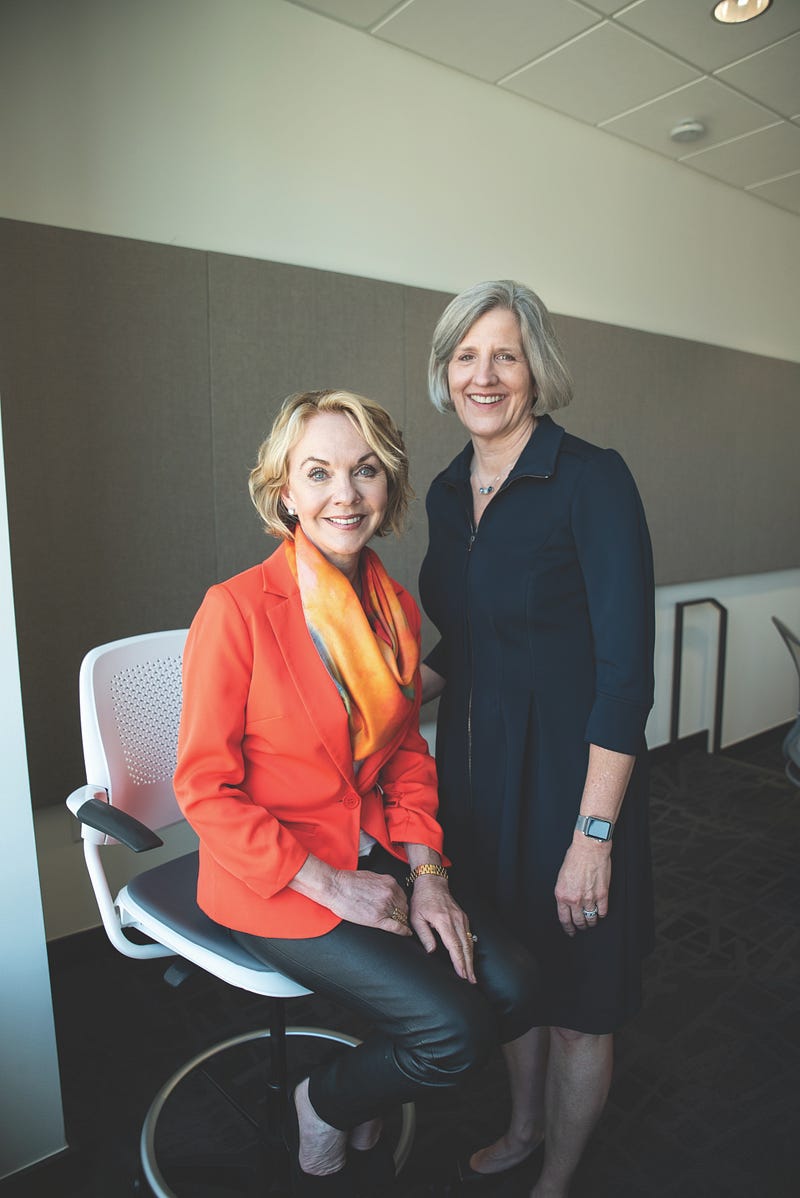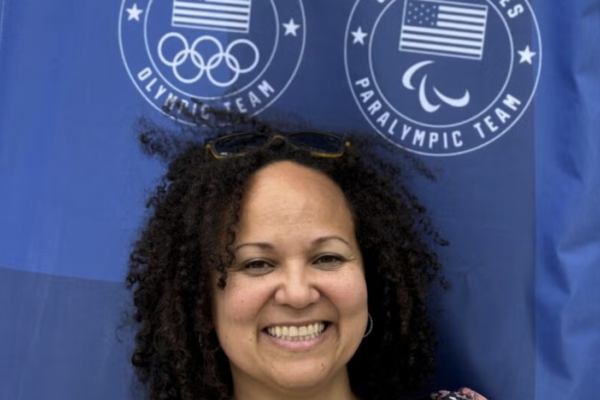Women Who Mean Business
In a new leadership training program, veteran CEOs offer their entrepreneurial and corporate expertise to keep beleaguered career women from jumping ship
By Judie Kinonen

Hoping to help stem the surge of women exiting the workforce, Texas McCombs is launching Women Who Mean Business, a six-month leadership development program through Texas Executive Education starting in September.
The leaders are two CEOs and McCombs Hall of Fame alumnae — Gay Gaddis, founder of T3 advertising agency and author of Cowgirl Power: How to Kick Ass in Business and Life, and Lynn Utter, a serial C-suite executive who advanced through the ranks at Coors Brewing Company and Frito-Lay.
With the U.S. Bureau of Labor Statistics reporting nearly 3 million American women left the workforce during the past year, the percentage of women working has fallen to 57%, the lowest since 1988, according to the National Women’s Law Center. Gaddis and Utter say there has never been a better time to teach high-potential women how to stay in the game and achieve equity in the workplace.
87% of female business owners have been adversely affected by COVID-19. (Mastercard Index of Women Entrepreneurs 2020)
“As much progress as women have made since we started our careers, they’re still not where they should be,” Gaddis says. In fact, only 37 Fortune 500-ranked businesses had female CEOs in 2020. That’s 7.4%.
“Lynn and I made it to a certain level, and the question is, ‘How did we do that?’” Gaddis says. “We’ve been dissecting our individual careers: What were the times when we almost threw in the towel or stepped aside? What kept us going? And what are the factors that will get more women into the C-suite?”
In the crucible
Ideal program applicants are women with more than five years of leadership experience who are looking to hone their decision-making skills, define their personal leadership styles, and push through the “crucible moments” in their careers, Utter says. Those are the times when outside pressures pose work-life challenges.
“These women may be dealing with maternity, child care, elderly care, or a spouse with a relocation opportunity,” Utter says. “We want to meet them there and give them perspective.”
She points to studies that show women who drop out of the workforce find it difficult to return and often end up in jobs beneath their education and experience. “Couples make short-term economic decisions, but they don’t factor in the long-term cost,” Utter says.
Women of color expect financial recovery to take six years: 7 in 10 women say the pandemic has some effect on their finances, with 1 in 3 saying recovery could take more than a year. (EdelmanFinancialEngines)
She and Gaddis note the pandemic posed a new level of crucible, as women have disproportionately shouldered the responsibilities of education and child care. A September 2020 report by Lean In and McKinsey & Company found 1 in 4 women have or are considering downshifting their career or leaving the workplace early.
Women around the world lost $800 billion in income last year, according to Oxfam International. In the United States alone, women lost 700,000 more jobs than men did as of November 2020, the Bureau of Labor Statistics reports. “The opportunity for this program has been there always, but the need is exponentially greater now,” Utter says.

A ripe time
Shortly before the pandemic shuttered the campus, Gaddis approached then-Dean Jay Hartzell with the idea for a seminar to help women recharge, connect, and focus their careers. It’s a subject she’s written about and spoken on in corporate environments for decades, so she knows businesses are eager for initiatives that point their talented female employees up the corporate ladder.
When she asked her friend and admired colleague, Utter, to partner with her, the subject line of her email read, “I’m going to make you an offer you can’t refuse.”
Planning to retire this year and focus on her board duties, Utter laughs as she recalls she almost didn’t answer the phone when Gaddis called. “But the more I thought about it, the more I realized she was right: Women need this kind of connection right now.”
Company profits and share performance can be close to 50% higher when women are well represented at the top. (McKinsey)
Networking among participants is a key part of the program. As Utter and Gaddis say, getting advice from like-minded female peers was a lifeline during trying times in their own careers.
Utter proposed they split the program into four sessions, with each meeting about a month apart. Attendees will be immersed in a two-day curriculum, return to their workplace to practice their new skills, and then circle back to campus with relevant questions and fresh insights.
Applicants for the inaugural session come from such male-dominated fields as the military, law, science, and manufacturing. Texas Executive Education is accepting applications and nominations this summer on a rolling admissions basis.
Women are 3X more likely to sacrifice their career for their family. (U.S. Bureau of Labor Statistics)
“By definition, women are ‘other’ in leadership ranks, so I tell them they have got to learn to fit in,” Utter says. “But fitting in is not what gets you into leadership positions: You also have to learn to stand out in a way that makes people want to follow you.”
Striking that balance is at the core of the curriculum Utter and Gaddis have designed. “We’re going to guide these women to be true to themselves and discover what their strengths are,” Gaddis says. “That’s when you do your best work.”
About this Post
Share:


